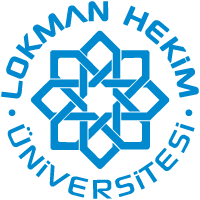| dc.contributor.author | Özbalcı, Furkan | |
| dc.contributor.author | Kaçaroğlu, Demet | |
| dc.contributor.author | Gürbüz, Nilgün | |
| dc.date.accessioned | 2020-12-09T11:43:15Z | |
| dc.date.available | 2020-12-09T11:43:15Z | |
| dc.date.issued | 2020-06-15 | |
| dc.identifier.uri | http://hdl.handle.net/20.500.12591/374 | |
| dc.description.abstract | Pancreatic ductal adenocarcinoma (PDAC) is one of the cancers with the highest mortality and morbidity. The causes of poor prognosis of PDAC underline the dysregulation of the molecular mechanisms including cell cycle, resistance of apoptosis and chemotherapy, deterioration of cell structure as a result of interaction with the tumor microenvironment, hypoxia formation and change of the stromal structure. Due to the impairment of balance between production and degradation of extracellular matrix proteins, the fibrotic stroma is concentrated and accelerated the invasion, migration and metastasis mechanisms. Once cancer cells are secreted exosomes containing cytokines, peptides, mRNA and protein inhibitors, cancer associated fibroblasts and irregular collagen weave are formed as a result of the disruption of the natural structure of fibroblasts and collagen. Followed by this, the increase in hyaluronan synthase enzyme activity and also accumulation of hyaluronan in extracellular matrix cause
to enhance the concentration of stroma. The generation of immunosuppressive tumor microenvironment resulting in impairment of matrix morphology lead to decrease to treat PDAC patients having immunotherapy and chemotherapy. Therefore, the novel therapeutic approaches targeted extracellular matrix degradation are needed to develop to increase the efficiency of chemotherapeutic drugs gemcitabine and paclitaxel. For this purpose, phase studies are ongoing to develop therapeutic approaches targeted the prevention of migration using matrix metalloproteinase inhibitors, the blocking of fibrotic stroma mediated antagonistic monoclonal antibodies and small peptides to Hedgehog receptors, the usage of CD40 agonists to increase macrophage filtration into the tumor microenvironment. In this review, it was aimed to understand pancreatic tumor microenvironment and explain the molecular mechanisms affecting extracellular matrix degradation. Given the reports in literature, our review will help to light on future investigations related to extracellular matrix degradation targeted novel therapeutic strategies. | en_US |
| dc.language.iso | tur | en_US |
| dc.publisher | Sağlık Bilimleri Enstitüsü | en_US |
| dc.rights | info:eu-repo/semantics/openAccess | en_US |
| dc.rights | Attribution-NonCommercial-NoDerivs 3.0 United States | * |
| dc.rights.uri | http://creativecommons.org/licenses/by-nc-nd/3.0/us/ | * |
| dc.subject | PDAC | en_US |
| dc.subject | Ekstrasellüler Matriks | en_US |
| dc.subject | ECM | en_US |
| dc.subject | Metastaz | en_US |
| dc.subject | Terapötik Yaklaşım | en_US |
| dc.title | Pankreatik Duktal Adenokarsinomada Ekstrasellüler Matriks Degradasyonu Hedefli Tedavi Yaklaşımları | en_US |
| dc.title.alternative | Extracellular Matrix Degradation Targeted Therapy Approachesin Pancreatic Ductal Adenocarcinoma | en_US |
| dc.type | info:eu-repo/semantics/article | en_US |
| dc.contributor.department | Temel Tıp Bilimleri | en_US |















